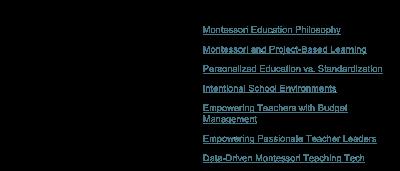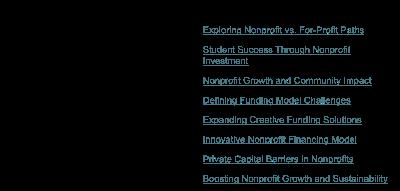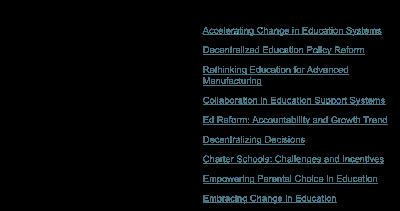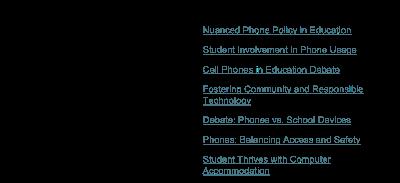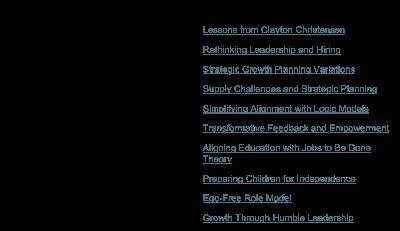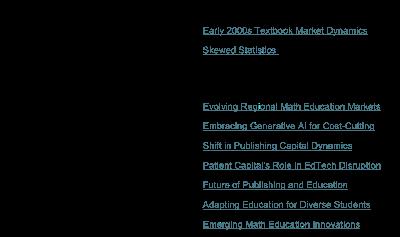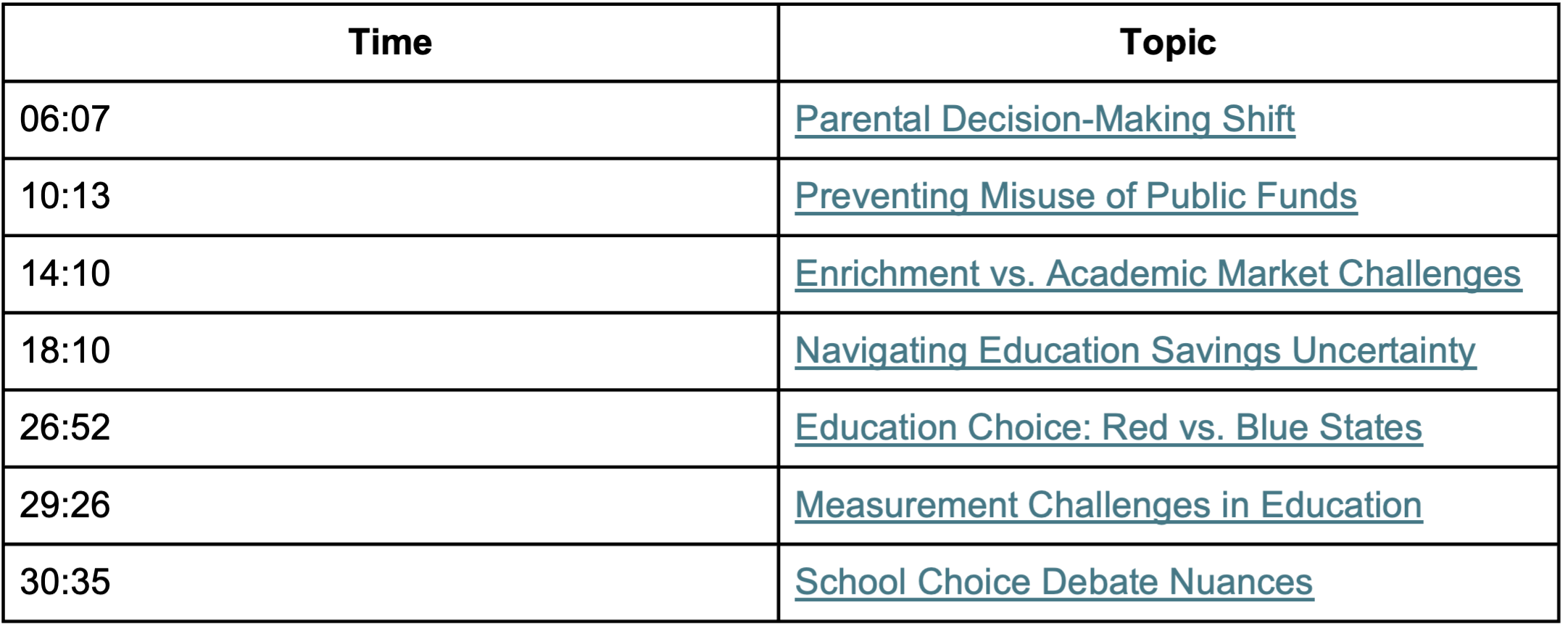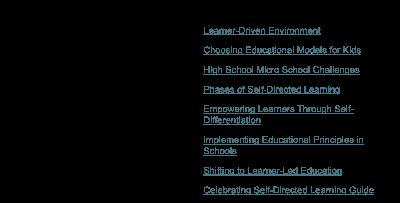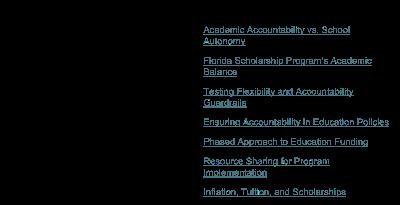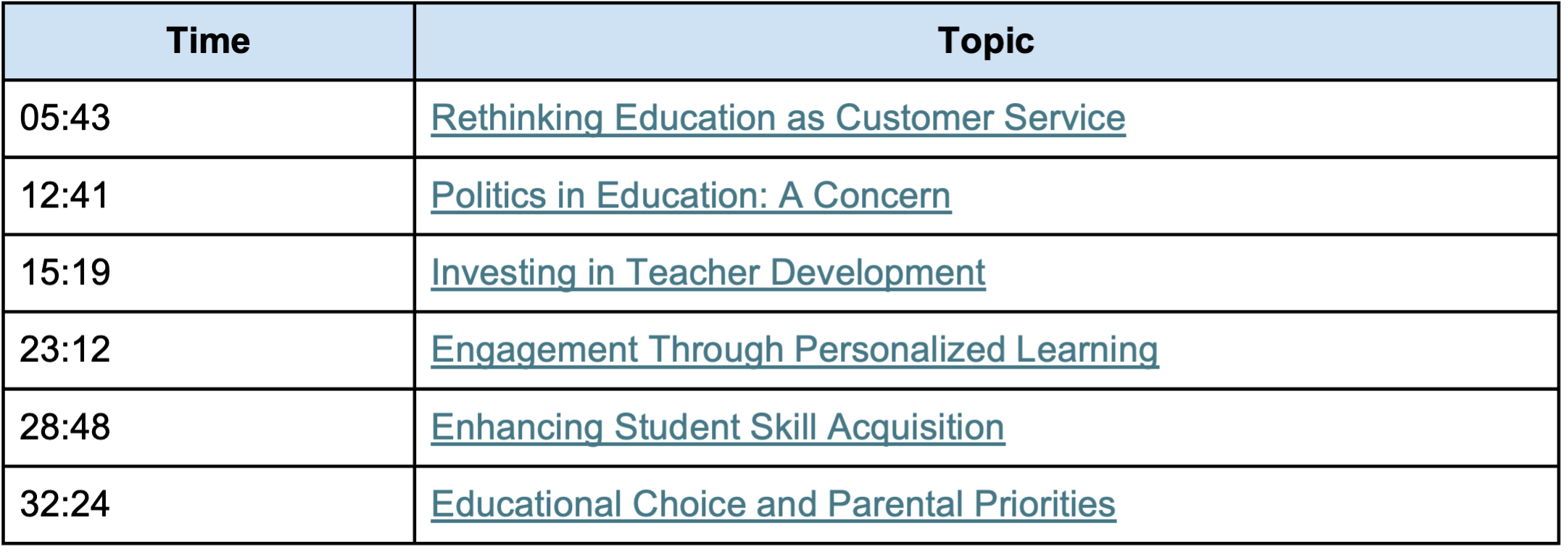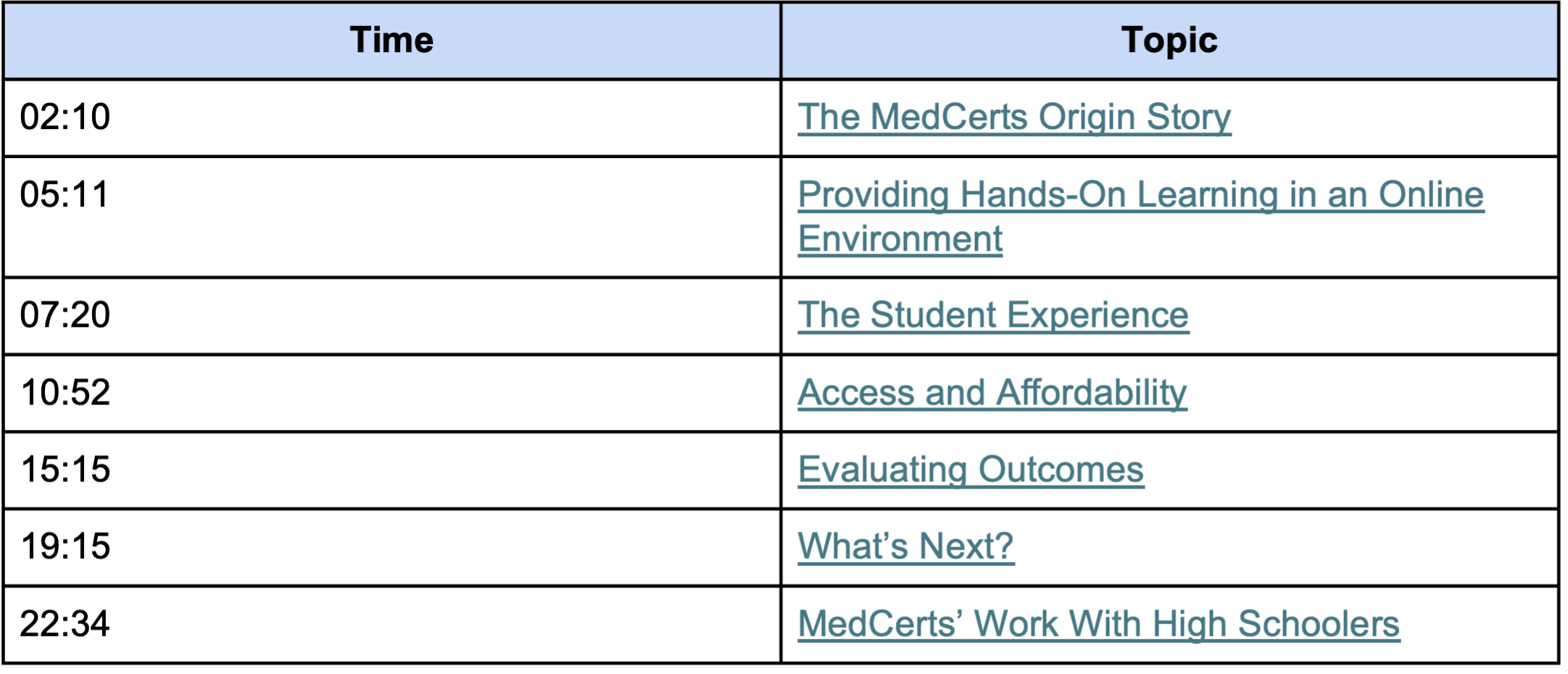10 Years of Wildflower Microschool Growth for Teachers & Students
Description
Matt Kramer, CEO and co-founder of Wildflower Schools joins me to delve into the origin and growth of Wildflower Schools, a network of microschools rooted in the Montessori philosophy. The network now boasts 72 schools across the country. Kramer shares his insights on how to create environments that empower teachers as leaders so that their unique qualities and visions shine through. We also discussed the role of technology in enhancing educational practices; the significance of small, personalized educational settings; and how Matt thinks about fostering growth of the network while maintaining the space for individuality among students and teachers alike. I loved the discussion, for example, of one of the Wildflower schools located on the west coast of Puerto Rico that is housed in a local special education services program and has developed a version of Montessori that is focused on kids with neuro differences. As microschools continue to grow, I found this conversation fascinating as Wildflower blends the benefits of a national network with schools that are led locally and rooted in the community.
Michael Horn
Welcome to the Future of Education. I'm Michael Horn and you are joining the show where we are dedicated to creating a world in which all individuals can build their passions, fulfill their potential, and live lives of purpose. And to help us think through how we get there today, one of my personal favorite people in and around the world of education, we have Matt Kramer. He’s the CEO and co-founder of Wildflower, which we will hear more about shortly. It's a Wildflower schools, or a series, network, if you will, of microschools that have been sprouting up like wildflowers dare I say. They have a Montessori philosophy at their heart. And I will stop talking and describing it there because Matt, welcome. It's so good to see you. You're gonna tell us a lot more in a moment.
Matt Kramer
Thanks for having me. Appreciate it.
Michael Horn
Yeah, absolutely. So you’re in your 10th anniversary of the founding of Wildflower Schools.
Why don't you tell us your origin story for like, how it all came about and progressed to the point where you're now, you know, 72 schools, I think, around the country and continuing to grow pretty rapidly at this point.
Matt Kramer
Sure. Well, let's see. The first brief stop in the origin story is that I was a Montessori kid and, and I also have ADHD and couldn't sit still. And my first tour through pre Montessori schools didn't go very well. Spent a lot of time during recess in class making up for my inability to sit still. And luckily for me, we moved to a new city and my parents found a Montessori school for me. And you know, for the first time, school was largely a positive event.
I, you know, then fast forward when I was the president and CEO of Teach for America for a decade and helped bring a lot of people into the world of educational change. And as we did that, I saw a lot of just extraordinary people make the choice to go into all sorts of different settings across the country, in different cities, different charters and non charters. And at Teach for America, the thing that we would say to people on the way in is that this is a really challenging environment you're going to go into, and your job is to rise to the occasion to transcend the limitations of the situation, to be a leader. And the truth is, some people really were able to pull that off. Some people really weren't able to pull that off. But a lot of people in the middle were just ultimately worn down by the challenges and limitations of the situation. The, you know, their leadership sort of comes into a hard face off with the, with the system that's really designed to suppress leadership. And I had been thinking about this question of, well, what would it look like to have an environment in which actually leadership was supported, where like teachers actually could bring all of their capabilities.
And I was sort of toying with that question when I met this guy, Sep Kamvar, a professor at MIT who, coming at it from a different angle, he had been an entrepreneur, he'd sold the company to Google and he had risen up to the senior levels at Google, as head of personalization at Google, you know, back in the day. And he, you know, in that role, he had bought many, many companies for Google and brought in these entrepreneur teams and sort of had the same observation in that space that I had had in education. Like you bring in these extraordinary, they're clearly extraordinary, right? They've created their own companies and it's so good that Google wants to buy it. And then they get inside of Google and you just watch it crush the life out of them. And so he had this thought of, you know, he had a two year old at the time. He thought of, I'd love to create a school where the teacher's feeling, the teacher's experience and therefore what the teacher can project, is more like the entrepreneur and less like the person who just got bought by the behemoth. And he created the school in Cambridge and then, and then a few more that had this, that had this quality to them where every time you talk to a teacher, you know, the schools were tiny. They were like two teachers, 15, 20 kids, one room that's like the whole school.
And when you talk to the teacher and ask them, why are you here? What are you, you know, what brought you to this moment? They would tell an origin story that was like an entrepreneur was like somebody who had started a great charter that you might see. They had a great entrepreneurial, social entrepreneurial story about what brought them there and exactly what were they trying to do. And as I went from school to school, which is really like classroom to classroom, every single one of them had that same, like this is my thing, energy to it. And when I saw it, I was sort of hooked. I was like, ah, here we are. This is a way to bring together my personal views about child centered approaches to education and the lessons I had learned about the role that teachers can play in creating really extraordinary experiences if you create the right setting for them.
Michael Horn
So there's a number of places I want to go there. And I'll, I'll say, I think you and I probably started talking around 2015, 2016. I'm probably going to get my dates wrong. But, uh, it was early in the life of Wildflower, and then you were super generous. It was before the pandemic, I want to say, 2018 or thereabouts. And you spent like a whole day with me, taking me through, I think, three of your sites in Massachusetts, both to explain what y'all were doing at Wildflower, but also to help me understand Montessori education more deeply. So maybe let's start on that side. I want to spend most of the conversation on the Wildflower side.
But Montessori education itself, you just mentioned child-centered education. Everyone has different definitions of that. I think there are a lot of misimpressions around what Montessori education itself is and how it aligns with, you know, you sort of get these food fights in education, direct instruction versus inquiry-based, and you're like, actually it comes together really nicely as an and in Montessori. And so, like, how do you describe what Montessori education at its core is about and sort of its extensibility, if you will.
Montessori Education Philosophy
Matt Kramer
Yeah. So I think the big idea behind Montessori, you know, thanks to Maria Montessori, who, depending on who you ask, was either the first or the second female doctor in Italy 120 years ago or so, the sort of key idea is that people sort of come wired from the factory with the blueprints for their own life in them, and that our role as educators is to just sort of help them through the process of bringing that to life, bringing themselves to life, creating the person that they're going to be. And the way we can figure out what works is by watching kids, you know, And I think one of her observations was kids of loosely similar ages, you know, sort of three year wide, bands of kids, watch them as they, as they make choices about what they want to do when they're sort of given freedom and learn from that about what the development characteristics are of kids of an age. And so Montessori, so first sort of the big idea is like this responsiveness to the natural developmental patterns. And then what she did is she started with 3 to 6 year olds for local idiosyncratic reasons in Rome. She started with a group of three to six year olds and spent a lot of time watching them and developed this theory about what kids of that age are drawn into, what helps them develop and designed a curriculum around it. And I'll say a few of the features of that three to six year old curriculum, which is what Montessori is most famous for, but it goes from 0 to 18 now. But some of the features that 3 to 6 year old curriculum were first of all, the kids should have meaningful freedoms to move around, to make choices about what they work on, to make choices about who they work with, etc.
And the reason there is first, because of what she found, what her philosophy developed about the stuff that's already in the kid being such an important part of what we're trying to accomplish. And second, her empirical observation that choice is a very powerful lever for engagement. If people get to pick the things they do, they are interested in them intrinsically, even if it's the exact same thing somebody else picked. We don't like people telling us what to do. And in particular kids don't like adults telling them what to do. And so on the one hand, a pedagogy that is focused on using the power of kids' choice to engage them in things and all the sub

